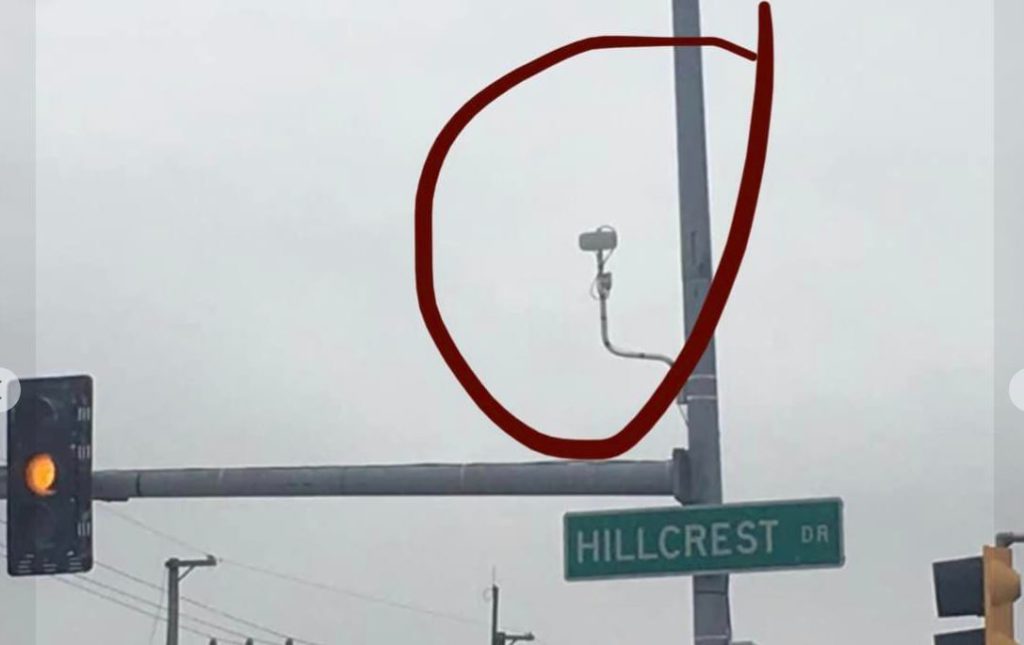DeKalb, Ill. (ECWd) –
On June 20, 2023, the Illinois Attorney General’s Public Access Counselor (“PAC”) published a nine-page determination that photos taken by Police License Plate Recognition (“LPR”) cameras are subject to release under the Freedom of Information Act (“FOIA”).
On Sep 20, 2022, a requester asked for “copies of the photos or videos of the first five vehicles captured from the LPR camera pointing South on Sycamore Road near the Kishwaukee Country Club from 10:00 a.m. on September 28, 2022.”
The city of DeKalb denied his request in its entirety.
A request for review was submitted to the PAC contesting the denial, arguing that the City’s previous disclosure of the technical specifications and operational procedures for the LPR cameras reflects that disclosure of the responsive records would not have the negative consequences contemplated by the City’s assertions.
The PAC asked the city to respond to the review, and to include copies of the photos taken. They City declined to provide the required photos to the PAC.
The city argued that it was not in the possession of the photographs, as a third-party vendor possessed all of them, however, the FOIA Act mandates that records in possession of contractors who are performing a governmental function are considered records of the public body.
After several other loser arguments made by the city, the PAC determined the city violated the FOIA in denying copies of the photographs requested.
From the PAC’s Determination Letter (emphasis ours):
“Unlike the evidence the CTA set forth in Chicago Sun-Times concerning how the views from the platform cameras would expose certain potential vulnerabilities in CTA’s security systems, the City has not demonstrated that disclosure of the photographs at issue would expose potential vulnerabilities in its LPR camera system or any other City security measures. The City did not describe the images it declined to provide for this office’s confidential review, despite the unambiguous requirement to provide this office with copies of those records, nor did it set forth facts illustrating that the photographs depict anything other than license plates themselves. In Glynn v. Department of Corrections, 2023 IL App (1st) 211657, __ N.E.3d __ (2023), the Illinois Appellate Court recently ruled that an affidavit by the Illinois Department of Corrections about security camera footage in a prison that sought to align with the CTA’s assertions in the Chicago Sun-Times case was insufficient to demonstrate that disclosure would potentially jeopardize prison security because it was “vague regarding the layout of the rooms in question, the scope of the area covered by each of the cameras, the location of the blind spots, the images’ clarity, and whether any of the cameras are hidden.” Glynn, 2023 IL App (1st) 211657, ¶47, __ N.E.3d __. Similarly, the City’s generalized claims are insufficient to show that disclosing the five requested photographs from one LPR camera could reasonably be expected to jeopardize the effectiveness of the City’s LPR camera system or anyone’s safety.
Accordingly, this office concludes that the City has not sustained its burden of proving by clear and convincing evidence that the responsive LPR photographs are exempt from disclosure. This office asks the City to disclose copies of those records to Mr. Van Buer.”
.
74063 f pub rec 71a improper 71v improper mun_Redacted







1 Comment
Kathiann
Posted at 10:37h, 21 JuneFOIA is our friend, especially in this time when the government wants to deny information to The People who pay their salaries.